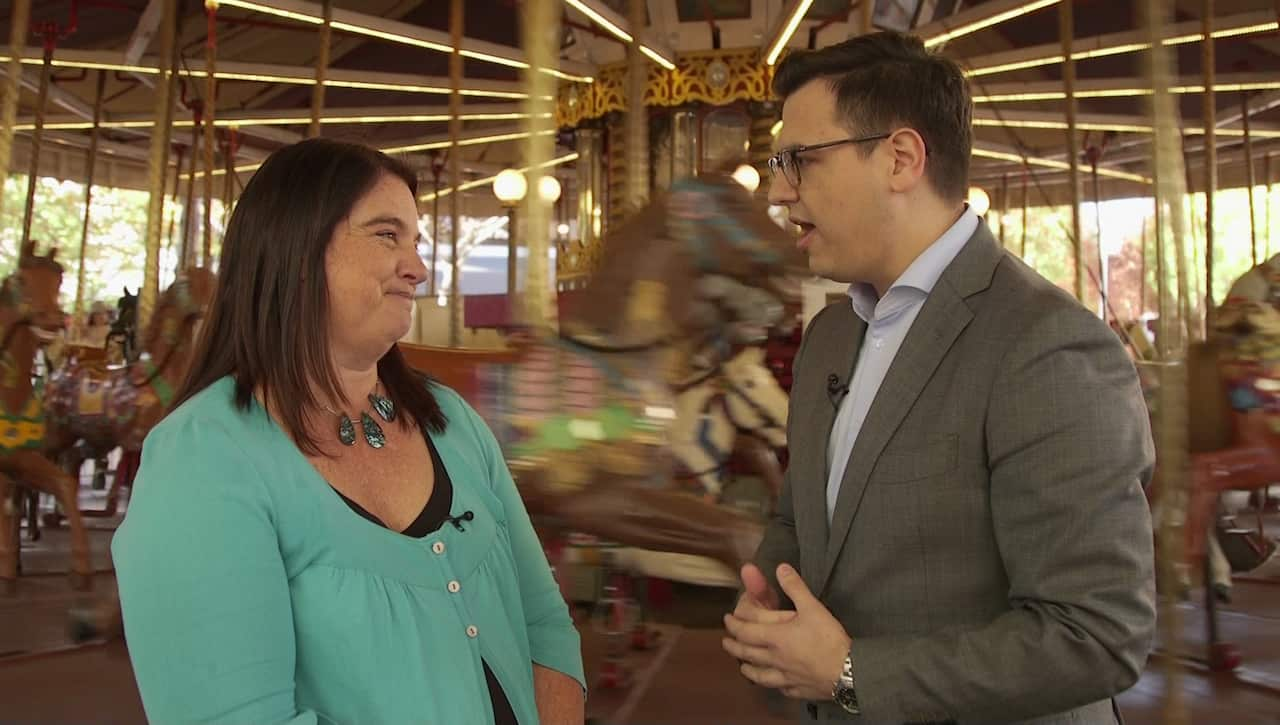The Canberra-based community organization empowers people with disabilities by providing them with access to employment and community engagement services.
“It originally started in the kitchen that I live in, there were six people who were ultimately looking for work. Now we’re an organization that works with approximately 450 people who are looking for work.
“It’s an amazing job, we have really clear outcomes, so I can go home at the end of the day if someone has got a job who has never worked before and they might be 45 and all of a sudden they’ve realized this dream of getting a job, being paid a wage, just being like other people in Canberra, you get that really big buzz.”
The company helps businesses through their recruitment processes, before helping train the individual once they have been employed. LEAD also employ a number of people with disabilities, enabling them to help businesses that might have a labour shortage at short notice, with Neville referring to the Australian Mint as an example, with the coin producer needing 50,000 coins packed during the Olympics, LEAD was able to provide them with the necessary workforce in a retracted time period.
LEAD also employ a number of people with disabilities, enabling them to help businesses that might have a labour shortage at short notice, with Neville referring to the Australian Mint as an example, with the coin producer needing 50,000 coins packed during the Olympics, LEAD was able to provide them with the necessary workforce in a retracted time period.

LEAD CEO speaks with SBS reporter David Sharaz. Source: SBS
Neville also referenced the important role the small and medium businesses play in providing impartial employment opportunities.
“SMEs are actually the leaders in employing people with disabilities. Part of the reason they lead the way is they’re way more flexible.
“One of the things we find in SMEs is versus larger businesses is the person that’s making the decision about wanting to employ people with disabilities is also the person who is impacted by that decision – they’re the people that are working with people with disabilities.”
There are challenges however, but not in the way that most would think, with Neville stating that the foremost problem is with perception with only 3% of employers turning to disability employment services when recruiting.
“It’s a fear that someone might do something wrong. It’s a concern that you have to be an expert in working alongside people with disabilities.
“It’s something that’s actually not true. If we could get people to just learn that it’s not risky, it’s not that it requires someone who has to do something vastly different – it’s just incorporating another worker into the workplace.”
Want to find out the secret to small business success? Tune into #BizSecretsSBS at Sundays 5pm on SBS, stream on SBS Demand, or follow us on Facebook, Twitter or Instagram.


